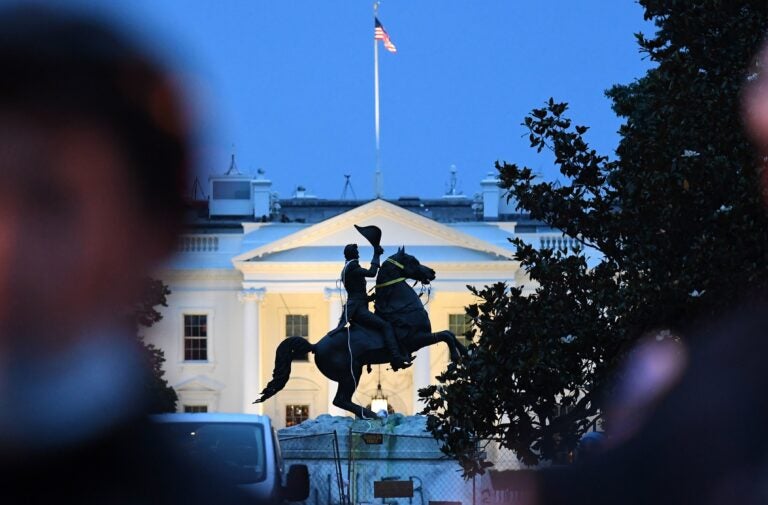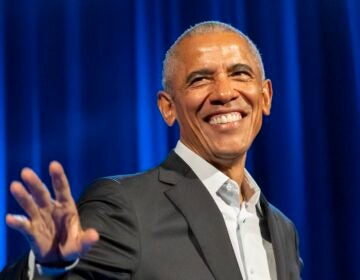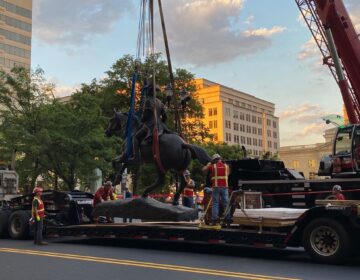A moment of reckoning: What histories do our monuments commemorate?
Amidst the weeks of protests, an old conversation has gained new traction: what do we do with our monuments to slaveholders and other problematic historical figures?
Listen 48:58
Police officers stand guard with the statue of former President Andrew Jackson after protesters tried to topple it Monday in Lafayette Square in Washington, D.C. (Eric Baradat/AFP via Getty Images)
In the weeks of protests calling for justice for George Floyd, an old conversation has gained new traction: what do we do with our monuments to slaveholders and other problematic historical figures? All across the country, monuments of Confederate generals, slave owners, and colonizers are being torn down. Universities, like Princeton’s former Woodrow Wilson School of Public and International Affairs, are renaming departments and buildings. And while some are in favor of the push to reimagine how we memorialize history, others are concerned that removing these monuments will make us forget parts of our history and puts us in danger of repeating it. Joining us this hour to grapple with these questions is ERICA ARMSTRONG DUNBAR, Professor of History at Rutgers University and JONATHAN ZIMMERMAN, Professor of History of Education at the University of Pennsylvania.
WHYY is your source for fact-based, in-depth journalism and information. As a nonprofit organization, we rely on financial support from readers like you. Please give today.





